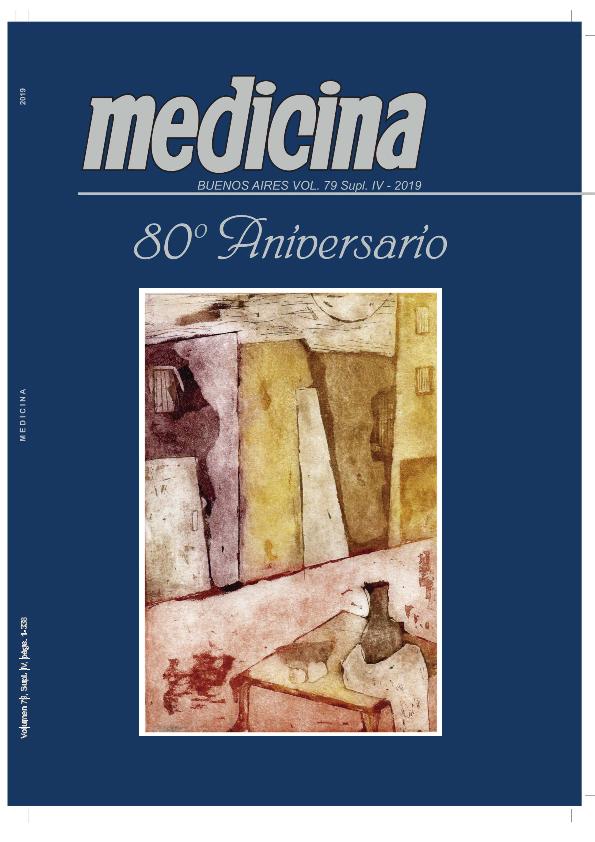Evento
Angiogenesis regulation: different mechanism of action elicited by progesterone (Pg) and medroxyprogesterone acetate (MPA)
Colaboradores:
Azurmendi, Pablo Javier

Tipo del evento:
Reunión
Nombre del evento:
LXIV Reunión Anual de la Sociedad Argentina de Investigación Clínica; LI Reunión Anual de la Asociación Argentina de Farmacología Experimental; XXI Reunión Anual de la Sociedad Argentina de Biología; XXXI Reunión Anual de la Sociedad Argentina de Protozoología y IX Reunión Anual de la Asociación Argentina de Nanomedicinas
Fecha del evento:
13/11/2019
Institución Organizadora:
Sociedad Argentina de Investigación Clínica;
Sociedad Argentina de Biología;
Asociación Argentina de Farmacología Experimenta;
Asociación Argentina de Nanomedicinas;
Sociedad Argentina de Protozoología;
Título de la revista:
Medicina
Editorial:
Fundación Revista Medicina
ISSN:
1669-9106
Idioma:
Inglés
Clasificación temática:
Resumen
In atherosclerosis, the generation of microvessels within the plaques represents a survival option for damaged tissue but would also be associated with the instability of the plaque. The risk/benefit of hormone replacement therapy using natural or synthetic progestins such MPA as an alternative to prevent cardiovascular diseases in menopausal women is controversial. The aim of this work was to evaluate the mechanism of action by which Pg and MPA regulate angiogenesis. Tube formation assay and endothelial cell (EC) culture derived from murine aorta were used to evaluate angiogenesis. Total tube length of vessel segments was quantified using ImageJ software. Both progestogens significantly enhanced the number of tube structures (26%; 46% above control, 100 nM Pg; 100 nM MPA respectively, p<0.05). Firstlywe tested the participation of Pg receptor (PgR). Pre-treatment of EC with RU486, an antagonist of PgR, completely inhibited the proangiogenic effect of Pg and MPA. Considering that VEGF is the main regulator of angiogenesis, we neutralize its action with a VEGF antibody (a-VEGF). Besides, we used the compound genistein to block the tyrosine kinase activity of VEGF receptor (VEGFR). The presence of a-VEGF or genistein abrogates the proangiogenic action of Pg. Meanwhile, the effect of MPA was not modified. Nitric oxide synthase (NOS) is involved in VEGFR downstream signaling pathway. In the presence of L-NAME, a NOS inhibitor, the stimulation of tube formation induced by Pg was blunted. Meanwhile, MPA action was not affected. The proangiogenic action of Pg was not altered by the presence of platelet-rich-plasma (PRP)-derived plasma. Instead, the MPA action was potentiated (29% vs 100 nM MPA, p<0.05). We demonstrated that 100 nM Pg markedly increased VEGF synthesis (39% vs control, p<0.05). In contrast, MPA (100 nM) did not affect VEGF production. In conclusion, both progestogens promote angiogenesis with a slight different mechanism of action elicited by each steroid.
Archivos asociados
Licencia
Identificadores
Colecciones
Eventos(INBIOSUR)
Eventos de INSTITUTO DE CIENCIAS BIOLOGICAS Y BIOMEDICAS DEL SUR
Eventos de INSTITUTO DE CIENCIAS BIOLOGICAS Y BIOMEDICAS DEL SUR
Citación
Angiogenesis regulation: different mechanism of action elicited by progesterone (Pg) and medroxyprogesterone acetate (MPA); LXIV Reunión Anual de la Sociedad Argentina de Investigación Clínica; LI Reunión Anual de la Asociación Argentina de Farmacología Experimental; XXI Reunión Anual de la Sociedad Argentina de Biología; XXXI Reunión Anual de la Sociedad Argentina de Protozoología y IX Reunión Anual de la Asociación Argentina de Nanomedicinas ; Mar del Plata; Argentina; 2019; 67-67
Compartir



